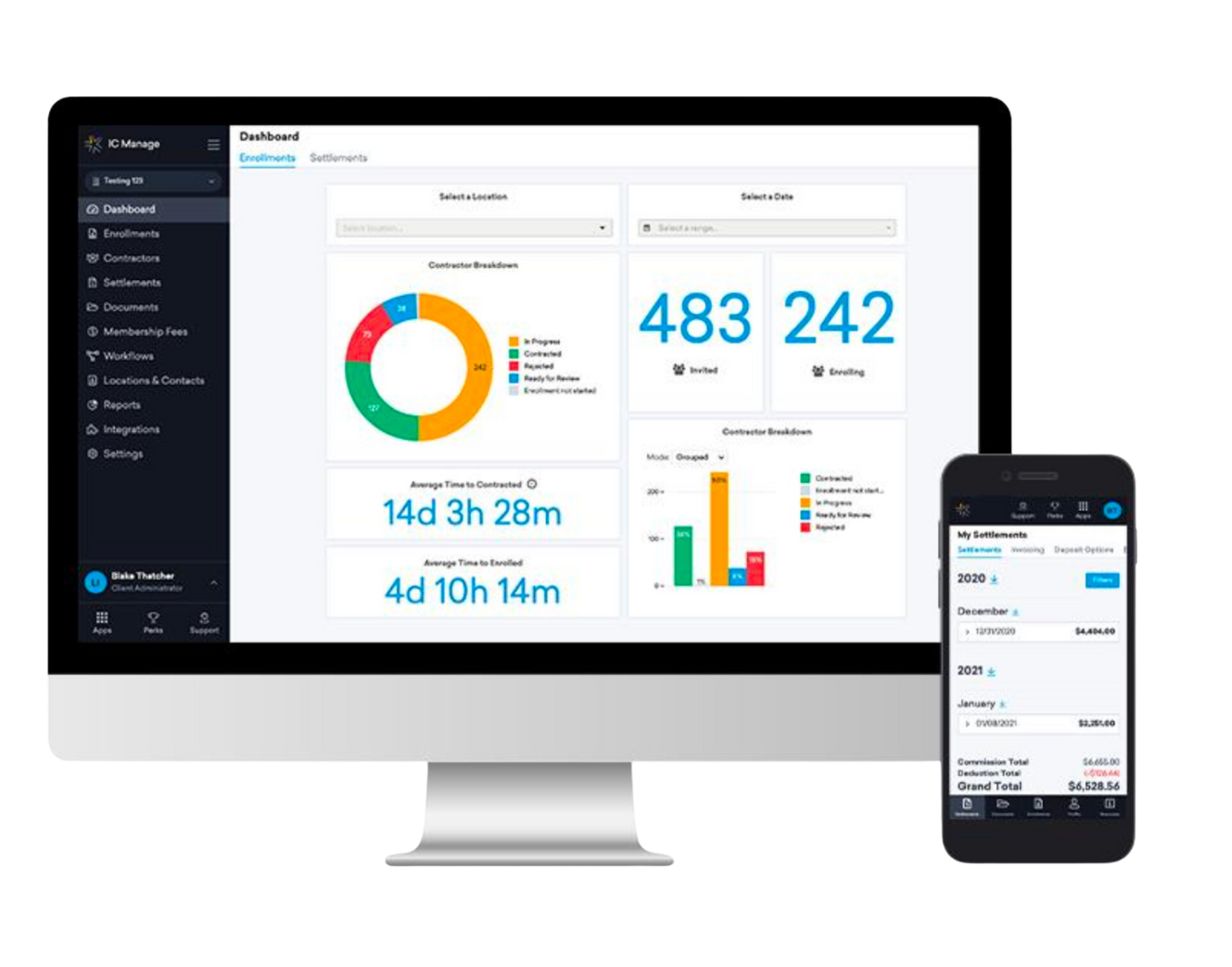We Simplify & Protect The Vital Relationship Between Contracting Companies & Independent Contractors.
Empowering growth and confidence through award-winning technology and insurance.

Solutions Built For Contracting Companies & Independent Contractors.
Our award-winning, customizable contractor management platform, tailored insurance solutions, and world-class support empower contracting companies and independent contractors to scale with confidence.
Contracting companies gain confidence and efficiency with our AI-driven contractor management platform—reducing compliance risks and operational costs through seamless onboarding, insurance facilitation, contract management, and settlement processing.
Independent contractors succeed as small business owners by leveraging business tools that minimize overhead costs and by gaining access to insurance coverages needed to protect against accidents on the job.
Experience & Facts You Can Trust.

23 years industry expertise

3X lift in IC retention

105+ misclassification claims; helped mitigate $10M+

94% faster IC onboarding
We Strive Everyday To Be World-Class & It Shows.
We take pride in aligning with esteemed organizations, adhering to the highest standards of excellence, and the accolades we achieve.




















